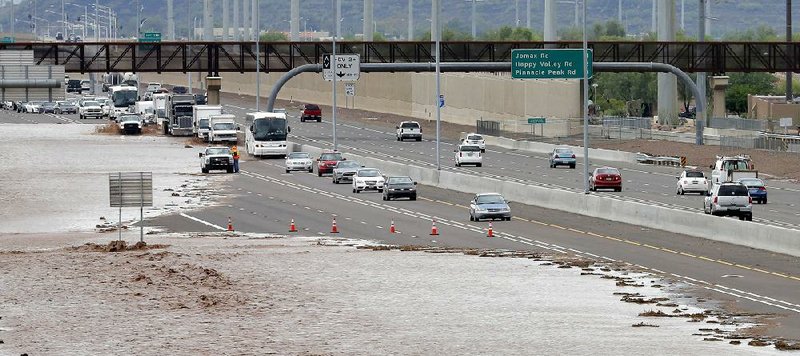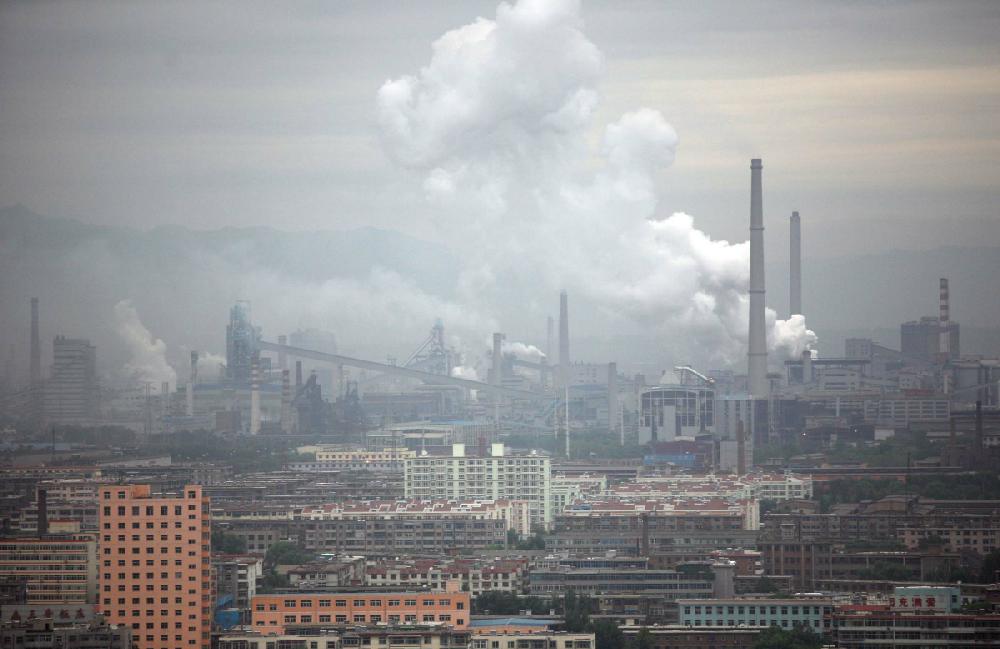Runaway growth in the emission of greenhouse gases is swamping all political efforts to deal with the problem, raising the risk of "severe, pervasive and irreversible impacts" over the coming decades, according to a draft of a United Nations report.
Global warming is already cutting grain production by several percentage points, the report found, and that could grow much worse if emissions continue unchecked. Higher seas, heat waves, torrential rain and other climate extremes are also being felt around the world as a result of human emissions, the draft report said, and those problems are likely to intensify unless the gases are gotten under control.
The world may already be nearing a temperature at which the loss of the vast ice sheet covering Greenland would become inevitable, the report said. The actual melting takes centuries, but it would be unstoppable and could result in a sea level rise of 23 feet, the report said, with additional sea-level increases from other sources like melting Antarctic ice, potentially flooding the world's major cities.
"Human influence has been detected in warming of the atmosphere and the ocean, in changes in the global water cycle, in reduction in snow and ice, and in global mean-sea-level rise; and it is extremely likely to have been the dominant cause of the observed warming since the mid-20th century," the draft report said. "The risk of abrupt and irreversible change increases as the magnitude of the warming increases."
The report was drafted by the Intergovernmental Panel on Climate Change, a body of scientists and other experts appointed by the United Nations that periodically reviews and summarizes climate research. It is not final and could change substantially before its release.
The report, intended to summarize and restate a string of earlier reports about climate change released over the past year, is to be unveiled in early November, after an intensive editing session in Copenhagen. A draft was sent to the world's governments for review this week, and a copy of that version was obtained by The New York Times.
The new draft highlights the urgency of the risks likely to be intensified by continued emissions of heat-trapping gases, primarily carbon dioxide released by the burning of fossil fuels like coal, oil and natural gas.
The report found that companies and governments had identified reserves of these fuels at least four times larger than could safely be burned if global warming is to be kept to a tolerable level.
It cited rising political efforts around the world on climate change, including efforts to limit emissions as well as to adapt to changes that have become inevitable. But the report found that these efforts were being overwhelmed by construction of facilities like new coal-burning power plants that will lock in high emissions for decades.
The draft report did find that efforts to counter climate change are gathering force at the regional and local levels in many countries.
The draft report also found that past emissions, and the failure to heed scientific warnings about the risks, have made large-scale climatic shifts inevitable. But lowering emissions would still slow the expected pace of change, the report said, providing decades for human society and the natural world to adapt.
The earth has so far warmed by about 1.5 degrees Fahrenheit above the level that prevailed before the Industrial Revolution, the report found, and that increase is causing effects already being seen around the world.
A continued rapid growth of emissions in coming decades could conceivably lead to a global warming exceeding 8 degrees Fahrenheit, the report found. The warming would be higher over land areas, and higher still at the poles.
Warming that substantial would almost certainly have catastrophic effects, including a mass extinction of plants and animals, huge shortfalls in food production, extreme coastal flooding and many other problems, the report found.
The report noted that severe weather events, some of them linked to human emissions, had disrupted the food supply in recent years, leading to several spikes in the prices of staple grains and destabilizing some governments in poorer countries.
Continued warming, the report found, is likely to "slow down economic growth, make poverty reduction more difficult, further erode food security, and prolong existing poverty traps and create new ones, the latter particularly in urban areas and emerging hot spots of hunger."
A Section on 08/27/2014


